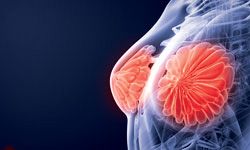ALRN-6924 Treatment Begins in Phase 1b Study of p53-Mutated Breast Cancer
A phase 1b trial of ALRN-6924 in patients with p53-mutated breast cancer who are being treated with doxorubicin plus cyclophosphamide and docetaxel has treated its first patients.

The first patients have been treated in a phase 1b randomized, controlled clinical trial evaluating ALRN-6924 in patients with p53-mutated breast cancer who are being treated with doxorubicin (Adriamycin) plus cyclophosphamide (Cytoxan) and docetaxel (Taxotere), according to Aileron Therapeutics.
In the trial, ALRN-6924 is being evaluated in its ability to prevent chemotherapy-induced neutropenia and other bone marrow toxicities, including toxicities outside of the bone marrow, within this patient population. While it is the standard of care and highly effective for patients with neoadjuvant breast cancer, doxorubicin plus cyclophosphamide and docetaxel (AC+D) is a highly toxic chemotherapy regimen. It causes both severe neutropenia in up to 75% of patients, as well as alopecia in approximately 90% of patients.
Previous data has demonstrated ALRN-6924's ability to arrest cell cycling and protect against chemotherapy-induced toxicities in bone marrow stem cells, epithelial gut mucosa cells, and hair follicles along with their stem cells.
Additionally, the company announced findings looking at patients with small cell lung cancer who were treated with topotecan and have shown proof-of-mechanism data for cell cycle arrest in bone marrow stem cells and hair follicle cells in healthy human volunteers, and proof-of-concept data for reduced multilineage bone marrow toxicities.
“Dosing of the first patients in our phase 1b trial in patients with p53-mutated neoadjuvant breast cancer is an important step in advancing our vision to bring chemoprotection to all patients with p53-mutated cancer regardless of the type of cancer or chemotherapy,” stated Manuel Aivado, MD, PhD, president and chief executive officer at Aileron Therapeutics, in the press release. “The severe toxicity profile of AC+D will enable us to evaluate ALRN-6924’s protective effect against multiple chemotherapy-induced toxicities. Moreover, this breast cancer trial may potentially open an additional regulatory opportunity with established precedents for supportive care drug approvals.”
The phase 1b clinical trial aims to investigate the safety, tolerability, and protective effect of ALRN-6924, and how it works against hematologic and other toxicities within an anticipated 30 patients with neoadjuvant breast cancer.
The trial will include a parallel group design with a dose expansion cohort, and patients will be administered doxorubicin plus cyclophosphamide on day 1 of each 3-week cycle for 4 cycles. Then docetaxel will be given on day 1 of each 3-week cycle for a total of 4 cycles.
Part 1 is the dose evaluation portion of the trial, where a control group of 8 patients with p53-wild type breast cancer will receive AC+D without ALRN-6924. Then, patients who have p53-mutated breast cancer on the same AC+D regimen will be randomized to concurrently receive ALRN-6924 at 0.3 mg/kg ALRN-6924 (n = 6) or at 0.6 mg/kg ALRN-6924 (n = 6).
ALRN-6924 will be given as an intravenous (IV) infusion on days 0, 1, and 2 of the study. Following part 1, part 2 will consist of the dose expansion portion of the trial where 10 patients will receive the same AC+D regimen and the ALRN-6924 dose selected in part 1.
The initial interim results in patients treated with doxorubicin plus cyclophosphamide in part 1 of the trial are expected to be released by the end of 2022. Further, interim results from the ongoing phase 1b randomized, double-blind, placebo-controlled clinical trial of ALRN-6924 in patients with non–small cell lung cancer undergoing treatment with first-line carboplatin plus pemetrexed with or without immune checkpoint inhibitors are anticipated to be reported in June 2022, along with topline results from that trial by the end of 2022.